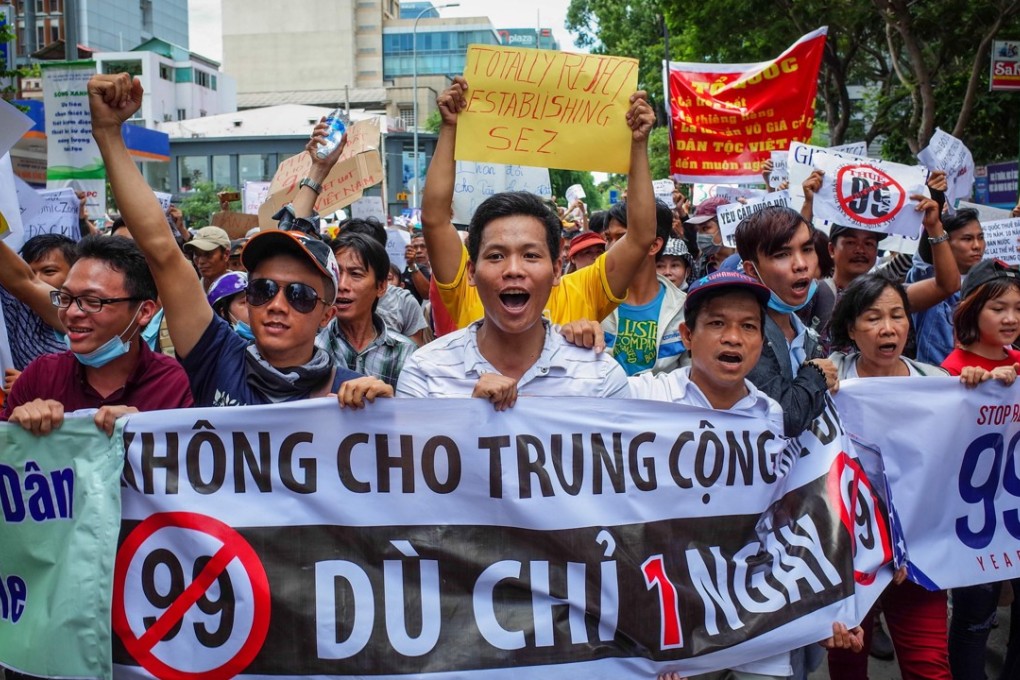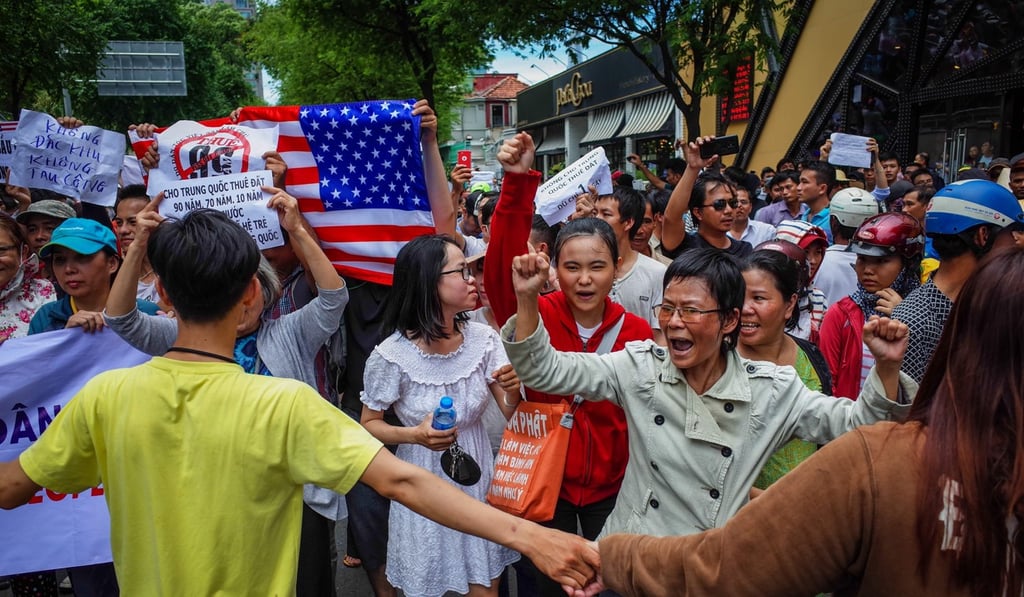‘Don’t give our land away’: the clash of interests in Vietnam’s anti-China protests
Hanoi is caught between its need for Chinese investment and nationalists’ demands not to bow to Beijing

The first sign of trouble came on a Saturday earlier this month when more than 1,000 workers went on strike at a Taiwanese shoe factory in Ho Chi Minh City in southern Vietnam, blocking a highway.
Chanting slogans and waving banners saying: “We don’t want to give any of our land away to China, not even for one day”, the protesters voiced opposition to the Vietnamese government’s plan to set up three new special economic zones where foreign companies would be granted decades-long leases.
The protests swept across the country, and by Sunday had broken out in places as far afield as Hanoi in the north and the provinces of Da Nanh in the south, according to several sources.
Police shut down protests in urban centres, and at times clashed with demonstrators, including in Binh Thuan province near Ho Chi Minh City, where protesters burned police vehicles and defaced government buildings.
Production stopped at multiple Chinese – and Taiwanese – owned factories across the south of the country, including Tan Houng Industrial Park in the southern province of Tien Giang, where hundreds of demonstrators gathered, holding up banners declaring: “I love the fatherland – don’t let China lease our land.”

The demonstrations rocked the country and exposed two competing tensions for the Vietnamese Communist Party – the need to expand its economic relationship with its neighbour to the north, and the nationalist struggle of a public who feel the leadership is selling the country to China piece by piece.